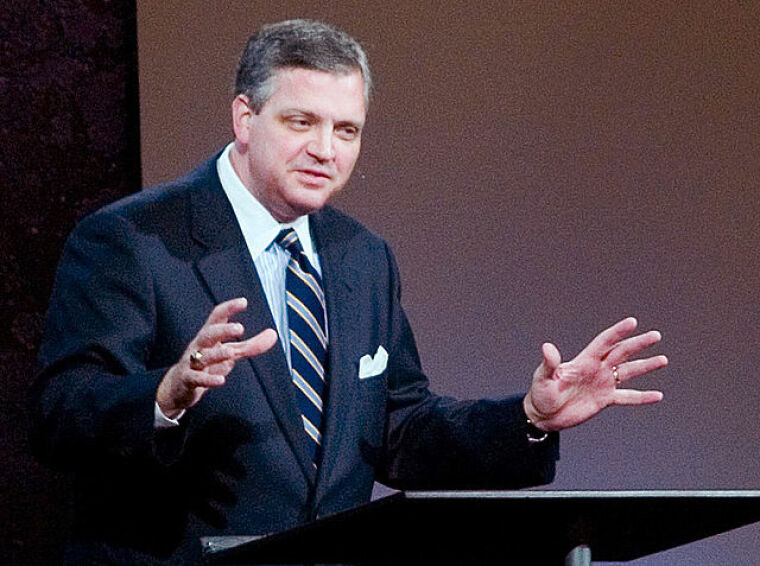Baptist leaders denounce USCCR religious freedom report as a 'moral & political disaster'
Leading Southern Baptists have voiced their concerns about the religious freedom report released earlier in September by the U.S. Commission on Civil Rights (USCCR). The report asserted that the phrases "religious liberty" and "religious freedom" were merely code words for different forms of intolerance.
"The phrases 'religious liberty' and 'religious freedom' will stand for nothing except hypocrisy so long as they remain code words for discrimination, intolerance, racism, sexism, homophobia, Islamophobia, Christian supremacy or any form of intolerance," the USCCR report stated.

Russell Moore, president of the Ethics and Religious Liberty Commission (ERLC), characterized the language used in the report as a "logical, moral and political disaster."
Moore suggested that the current U.S. administration is engaging in a culture war against religious people by labeling the words "religious liberty" as a euphemism for unlawful discrimination. He contended that all the other freedoms cannot exist without the freedom of conscience.
"This hostile attitude toward tens of millions of law-abiding Americans is tragic, and my prayer is that it would quickly give way to a recognition that soul freedom is worth defending for all," Moore told the Baptist Press.
R. Albert Mohler Jr., president of Southern Baptist Theological Seminary, noted that the report received little public attention but he described it as a "bombshell."
In his podcast, Mohler voiced his concern that sexual liberty related to LGBT issues and gender identity had taken prevalence over religious liberty. He pointed out that the LGBT issues are not in the constitution while religious liberty is specifically declared in the document.
Mohler noted that the author of the report used scare quotes to refer to religious freedom and religious liberty. He asserted that by the use of quotes, the author was actually denying that religious freedom and religious liberty are "objective constitutional realities."
Gail Heriot, a member of the USCCR, has stated that she disagreed with majority of the opinions in the report.
"I'm troubled by the growing attitude that somehow anti-discrimination laws trump everything. We live in a more complex world than that," she told the Washington Times.
 Christians don't have to affirm transgenderism, but they can’t express that view at work: tribunal
Christians don't have to affirm transgenderism, but they can’t express that view at work: tribunal Archaeology discovery: Medieval Christian prayer beads found on Holy Island
Archaeology discovery: Medieval Christian prayer beads found on Holy Island Presbyterian Church in America votes to leave National Association of Evangelicals
Presbyterian Church in America votes to leave National Association of Evangelicals Over 50 killed in 'vile and satanic' attack at Nigerian church on Pentecost Sunday
Over 50 killed in 'vile and satanic' attack at Nigerian church on Pentecost Sunday Ukrainian Orthodox Church severs ties with Moscow over Patriarch Kirill's support for Putin's war
Ukrainian Orthodox Church severs ties with Moscow over Patriarch Kirill's support for Putin's war Islamic State kills 20 Nigerian Christians as revenge for US airstrike
Islamic State kills 20 Nigerian Christians as revenge for US airstrike Man who served 33 years in prison for murder leads inmates to Christ
Man who served 33 years in prison for murder leads inmates to Christ


 Nigerian student beaten to death, body burned over ‘blasphemous’ WhatsApp message
Nigerian student beaten to death, body burned over ‘blasphemous’ WhatsApp message 'A new low': World reacts after Hong Kong arrests 90-year-old Cardinal Joseph Zen
'A new low': World reacts after Hong Kong arrests 90-year-old Cardinal Joseph Zen Iran sentences Christian man to 10 years in prison for hosting house church worship gathering
Iran sentences Christian man to 10 years in prison for hosting house church worship gathering French Guyana: Pastor shot dead, church set on fire after meeting delegation of Evangelicals
French Guyana: Pastor shot dead, church set on fire after meeting delegation of Evangelicals ‘Talking Jesus’ report finds only 6% of UK adults identify as practicing Christians
‘Talking Jesus’ report finds only 6% of UK adults identify as practicing Christians Mission Eurasia ministry center blown up in Ukraine, hundreds of Bibles destroyed: 'God will provide'
Mission Eurasia ministry center blown up in Ukraine, hundreds of Bibles destroyed: 'God will provide' Church holds service for first time after ISIS desecrated it 8 years ago
Church holds service for first time after ISIS desecrated it 8 years ago Burger King apologizes for 'offensive campaign' using Jesus' words at the Last Supper
Burger King apologizes for 'offensive campaign' using Jesus' words at the Last Supper Uganda: Muslims abduct teacher, burn him inside mosque for praying in Christ’s name
Uganda: Muslims abduct teacher, burn him inside mosque for praying in Christ’s name